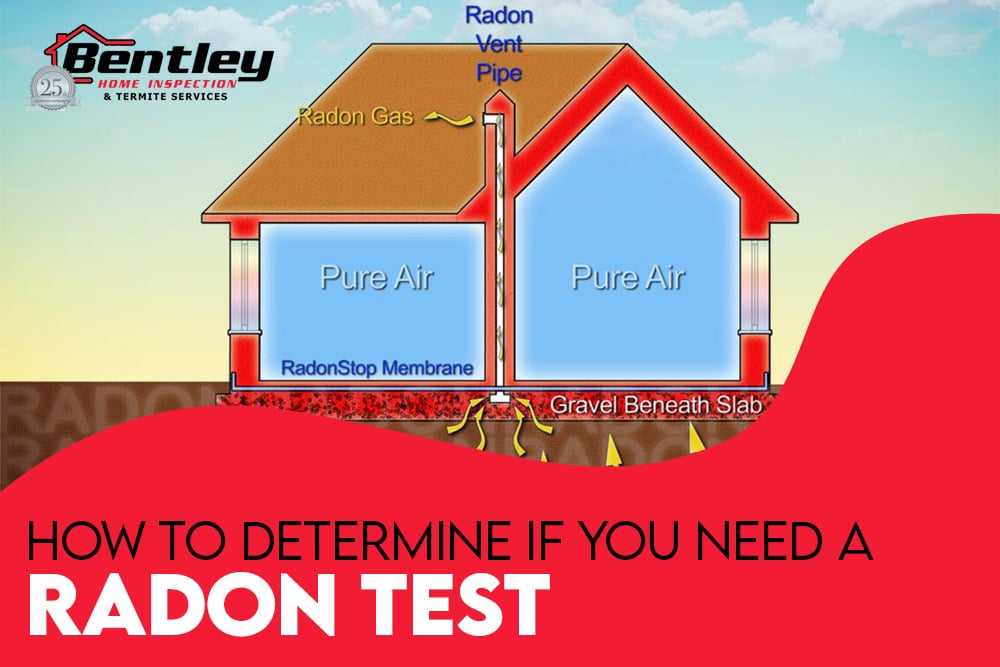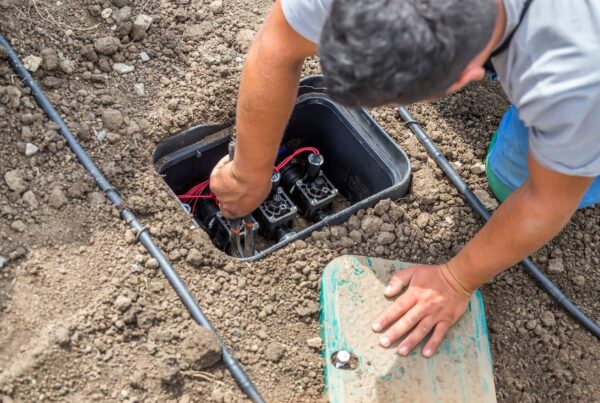
Radon gas is a naturally occurring, odorless, and colorless gas found in most homes. Radon exposure can lead to lung cancer, making it important for homeowners to determine if they are at risk. Learn in this article how to identify if you need a radon test and Radon Mitigation in Knoxville, TN, and what you should do if the results come back positive.
What You Should Know About Radon Exposure
You can’t see or smell radon, so the only way to know if you are at risk is to test for it.
You should always have a radon test done when buying or selling a home. Many home buyers don’t realize that they need to test for radon and end up with a house with high gas levels. A simple radon test kit can give you peace of mind and help you avoid a potentially dangerous situation.
If you live somewhere where radon is known to be present, or if your home has been tested and found to have high levels of radon, there are some things you can do to reduce your exposure. Radon mitigation systems can be installed in homes to reduce the level of gas present. These systems typically involve sealing cracks and openings in the foundation and installing a venting system that draws the gas out of the house and away from occupants. If you are concerned about radon exposure, talk to your doctor or contact your local health department for more information.
How to Determine if You Need a Radon Test
You can look at a few things to determine if you need a radon test. First, check whether your state or local government recommends or requires testing. If so, you should test your home. You may also want to test if you live in a place with high radon levels, if your home has been remodeled recently, or if you’re concerned about radon exposure.
If you’re not sure whether or not to test, there are some other things you can consider. For example, how old is your home? Older homes are more likely to have higher radon levels. Does your home have a basement? Basements are also more likely to have high radon levels.
If you are concerned that radon may be present in your home, there are several steps you can take to determine if your home needs to be tested:
- Check the radon level in your area: The Environmental Protection Agency (EPA) has a map that shows the average radon levels in different areas of the United States. If you live in an area susceptible to high radon levels, it is more likely that your home may have high levels as well.
- Look for signs of radon: Some common signs that your home may have high levels of radon include a musty or moldy smell, visible water damage or cracks in the foundation, and unexplained illnesses among household members.
- Consider the type of home you have: Radon can enter a home through any opening in the foundation, so all types of homes are at risk. However, certain types of homes may be more at risk, such as homes with basements or crawl spaces, homes with well water, and homes built on soil with high levels of radon.
- Test your home: The only way to find out if your home has high radon levels is to test for it. A radon test kit can be purchased from a hardware store or online or hire a professional to conduct the test. Follow the instructions provided with the test kit carefully to ensure accurate results.
If you discover that your home has high radon levels, there are multiple ways to reduce the levels and protect your family’s health. You can hire a professional to install a radon mitigation system, which can effectively reduce radon levels in your home.
Radon Testing Process
Radon testing is important to determine the levels of radon in your home. Radon is an odorless gas; not only that, it is colorless and radioactive as well. It can be found anywhere and in any home. It is important to test for radon because it can harm your health. The U.S. Environmental Protection Agency (EPA) highly recommends all homes be tested for radon.
The type of test you need will depend on how quickly you need results and how accurate you need them. There are two commonly used radon tests: short-term and long-term. Short-term tests take 2-90 days, while long-term tests take more than 90 days.
The most common type of radon test is the short-term test kit. These kits can be purchased at most hardware stores or online. To use a short-term test kit, simply open the package and place the detector in the lowest level of your home that you spend time in regularly. After the allotted time has passed, seal the detector and send it back to the lab for analysis. You should receive your results within a few weeks.
If you need results more quickly, you can opt for a digital short-term test kit. These kits work similarly to the standard short-term kit but provide results within 24 hours via email or text message. For a more accurate assessment of your home’s radon levels, consider
The Dos and Don’ts of a Radon Test.
When it comes to testing for radon, a couple of things should be kept in mind. First and foremost, it’s essential to have your home tested by a professional. This will ensure that the test is done correctly and that you get accurate results.
There are also a few things you should do (and avoid doing) during the test itself. Here are a few tips:
D.O. makes sure all doors and windows are closed before the test. This will help to ensure that no outside air enters the home and skews the results.
DON’T open any doors or windows during the test period. Doing so could allow outside air to enter the home and impact the results.
D.O. keeps any fans, or other ventilation sources turned off during the test period. These can also affect the results of the test.
DON’T smoke inside your home during the test period, as this can also impact the results. If you must smoke, do so outdoors only.
These simple tips will help ensure an accurate radon test for your home.
It is important to be aware of the potential risks of having high radon gas levels in your home. If you think there is a chance your home might have elevated radon levels, it’s best to take the necessary steps and get professional radon testing in Knoxville done as soon as possible. This way, you can protect yourself and your family from any potential health risks associated with long-term exposure to high concentrations of this dangerous gas.



